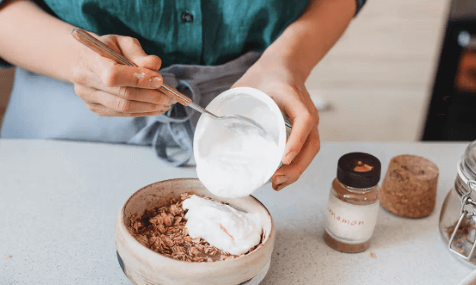How to Manage Crohn’s Disease Naturally: 9 Proven Tips

Living with Crohn’s disease isn’t the easiest thing, and anyone who’s been there would say that at times, it’s just hard to feel comfortable and in control. Sometimes it could be a full-time job simply dealing with the symptoms, but what if there are ways to naturally support your body alongside your medical treatments? What if you could quiet some symptoms down with a little bit of lifestyle change and some gentle nudges in your daily habits? Interested? Here are nine practical tips to help you manage Crohn’s disease more naturally.
Start with Food: Anti-Inflammatory Eating
Let’s get down to business: what we put in is a huge determinant of how we feel. For people with Crohn’s, that’s especially true. While there is no single “Crohn’s diet” that works for everyone, focusing on anti-inflammatory foods makes a big difference. Think leafy greens, lean proteins, and low-sugar fruits. These are foods that can help give your body some natural inflammation relief.
Avoiding common triggers is important too. Foods that many people with Crohn’s are sensitive to, such as dairy products, fried foods, and items high in fat or sugar, can exacerbate symptoms. Haven’t you ever noticed that certain things make you uncomfortable? Really, pay attention to your body, and keep a food journal if needed. Sometimes the best advice comes directly from how you feel after eating.
See also: How to Make Semi-Cured Gel Nails Last Longer: Maintenance Tips
Stay Hydrated, But Make It Count
We know it: hydration is key, but for a person with Crohn’s, it’s even more important. You can get dehydrated pretty fast when you have frequent diarrhea, like many people with Crohn’s do. But here’s the thing: not all drinks are created equal.
Instead of reaching for sugary drinks or sodas, try coconut water, which is naturally rehydrating and full of electrolytes. Herbal teas are also gentle on the digestion, whether it’s peppermint or chamomile. Keeping a water bottle nearby and taking sips throughout the day can be an easy habit to get into. Little things like this go a long way in keeping you feeling more balanced.
Mindful Eating: Make Mealtime a Ritual
In these busy times, it’s easy to rush through meals. But taking time to eat mindfully can indeed make all the difference. Eating slowly, chewing each bite well, and focusing on your meal rather than multitasking can make digestion smoother.
Think of it as a mini-meditation session where it’s just you, the food, and a few quiet moments. In addition, avoid heavy meals before bedtime because digestion can take a while, potentially causing discomfort when lying down.
Herbal and Natural Supplements to Ease Symptoms
The world of herbal supplements can be overwhelming, but certain herbs are known for their anti-inflammatory effects. Turmeric, ginger, and aloe vera have been used in different cultures for thousands of years to aid digestion and reduce inflammation. These natural choices might provide some relief when used alongside your regular treatment.
However, it’s always wise to consult with your healthcare provider before trying any new supplement, especially if you’re on other medications. Supplements can help, but they aren’t medical advice. Sometimes, less is more; starting with a small dose lets you see what really works for you.
Manage Stress Like a Pro
Did you know that stress can aggravate Crohn’s symptoms? Finding ways to manage stress can be a game-changer. Think about activities that help you feel calm. Yoga, meditation, and even a few minutes of deep breathing can have significant effects. These practices don’t have to be time-consuming—just a few minutes each day can be very grounding.
We can’t eliminate stress, but we can certainly learn to manage it better. So the next time you feel overwhelmed, try a quick breathing exercise or take a walk to clear your mind. These simple practices can help prevent flare-ups triggered by stress.
Exercise Your Body in Ways You Love
Exercise doesn’t have to mean hitting the gym every day. Moderate activities like walking, swimming, or yoga tend to be easy on the stomach while still offering all the benefits of movement. Exercise reduces inflammation, improves immune function, and often boosts mood.
Finding activities that you truly enjoy makes it easier to stick with an exercise routine. Moving your body—whether it’s a short walk in the park, a light yoga session, or an easy swim—can positively impact both body and mind.
Open to Alternatives? Try These Therapies
Alternative therapies are often associated with a natural approach to health management. Acupuncture, for example, has been used to manage pain and stress, and some people with Crohn’s find it beneficial. Massage therapy is another option, particularly for stress-related symptoms.
Not everyone will find relief with alternative therapies, but sometimes it’s the journey that counts. Trying these therapies with a qualified professional may yield another tool in your arsenal of comfort against Crohn’s.
Medical Marijuana for Pain and Inflammation
And here’s one that’s getting a lot of attention lately: medical marijuana. Specifically, medical marijuana may be beneficial for managing chronic pain and inflammation. Some states have legalized marijuana for medical purposes; one of them is West Virginia. In fact, you could apply for a medical marijuana card in WV through the proper channels, giving you legal access to this alternative treatment for Crohn’s.
Medical marijuana isn’t for everyone, but for some, it offers relief from real symptoms. Approach this option with caution and discuss it thoroughly with your healthcare provider to ensure it’s a good fit for you.
Probiotics: Feed Your Gut the Good Stuff
Have you ever heard of probiotics? These are the “good” bacteria that help keep your gut balanced. Crohn’s sufferers often find it challenging to maintain gut flora balance, but probiotics might help. Foods like yogurt (if tolerated), kefir, and fermented items like sauerkraut and kimchi are rich in these beneficial bacteria.
If these foods don’t appeal to you, there are also probiotic supplements. However, as with herbal supplements, it’s a good idea to consult your healthcare provider. Probiotics are generally safe, but finding what works best for your gut is key to gaining real benefits.
Wrapping It Up: A Holistic Approach to Crohn’s
Managing Crohn’s disease naturally doesn’t mean giving up your prescribed treatments. It’s about finding ways to support your body and complement medical approaches with lifestyle changes that help you feel better. This is a holistic approach that’s unique to each individual.
Take it one step at a time, and don’t be discouraged if results aren’t immediate. The journey to managing Crohn’s naturally is a personal one. Some days will be better than others, but tuning into your body, trying new routines, and staying informed are positive steps toward a healthier, more balanced life.





